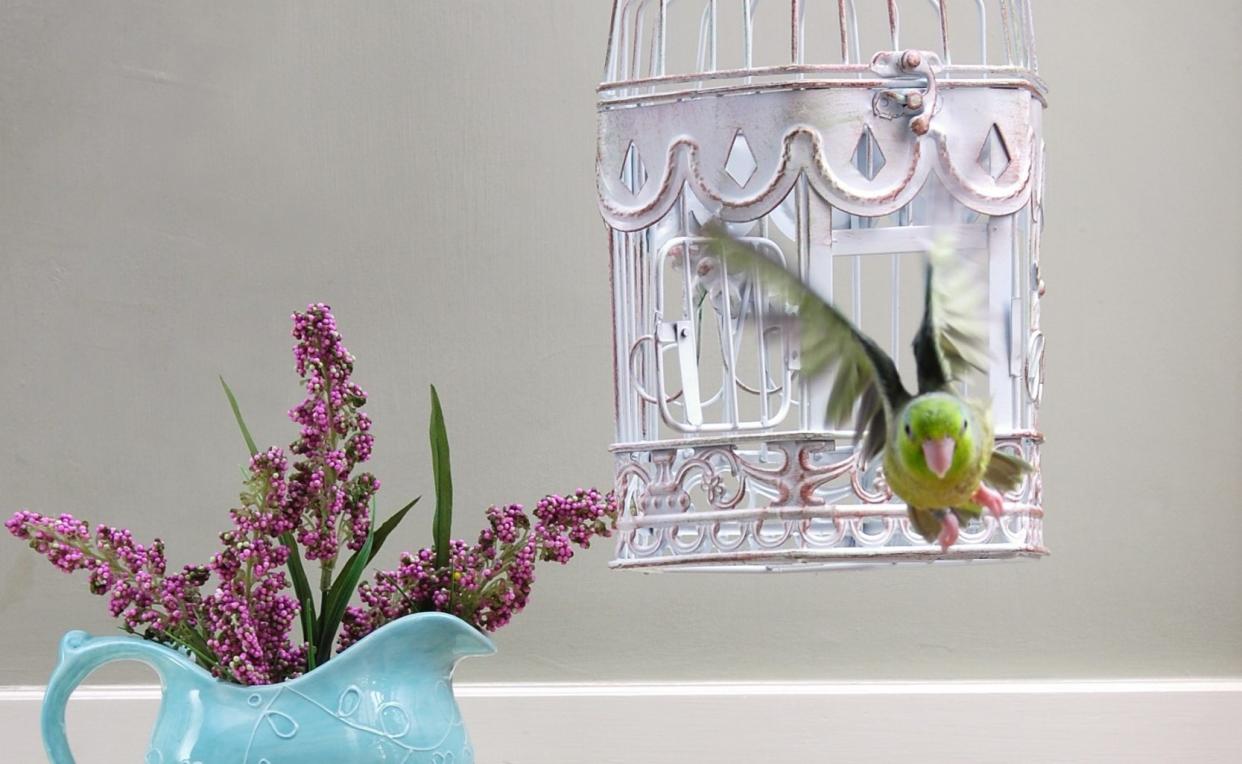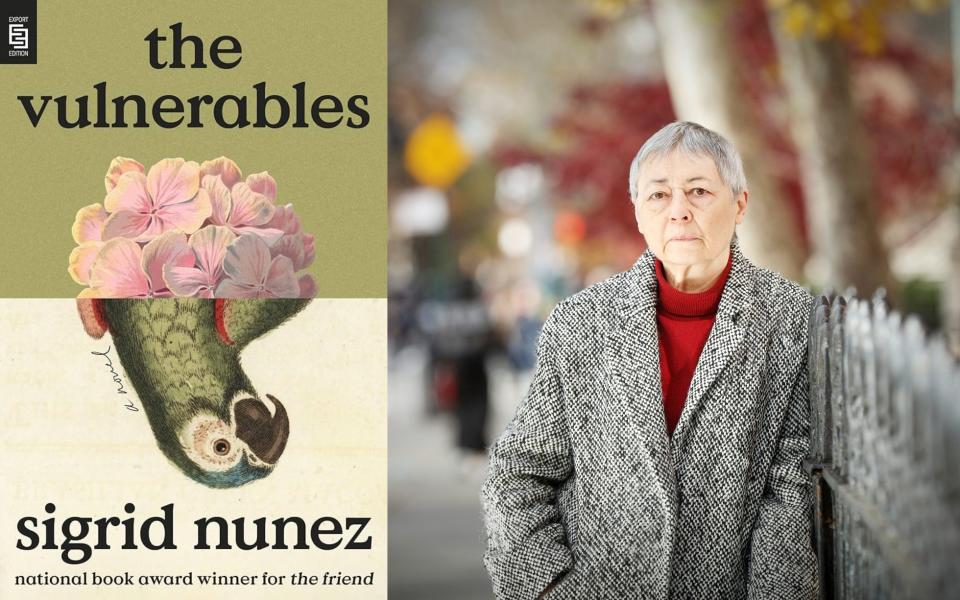Incarceration with a parrot? It’s one of the stories of the year

- Oops!Something went wrong.Please try again later.
- Oops!Something went wrong.Please try again later.
- Oops!Something went wrong.Please try again later.
Virginia Woolf began The Years, the last book she published in her lifetime, with the weather. “It was an uncertain spring,” Woolf wrote, and Sigrid Nunez uses the very same words to open her ninth novel, The Vulnerables. Here, the spring in question is that of 2020, and the narrator is suddenly “coming across words that would soon be overfamiliar – Wuhan, wet market, lockdown, quarantine”.
Yet Nunez’s protagonist – a nameless writer, like that of Nunez’s 2018 novel The Friend, which won the National Book Award and its author a much wider audience than she’d had before – recalls little else about The Years. “Only when I was young did I believe that it was important to remember what happened in every novel I read. Now I know the truth: what matters is what you experience while reading, the states of feeling that the story evokes, the questions that rise in your mind, rather than the fictional events described.”
And so Nunez sets us up to receive her narrator’s allusive tale. In that peculiar, frightening spring, our solitary writer agrees to house-sit for a friend of a friend, a woman called Iris. (Nunez bestows on all her characters the names of flowers and plants, and like Melville – “Call me Ishmael” – leaves the reader uncertain as to whether these names are more than metaphors.)
Iris has been stranded in California by the pandemic, leaving her beloved macaw, Eureka, in the care of another friend’s son – who skedaddles back to Vermont, leaving poor Eureka on his lonesome. “Neglected parrots were known to have drastic personality changes, Iris explained, sometimes even to the point of insanity.” The narrator agrees to step into the breach, but things don’t quite go according to plan.
Before long, the friend’s son returns, having discovered himself bereft without his avian companion. The narrator is not best pleased at having to share her space. “I’m going to call him Vetch,” she says of the young man, having previously noted that this is a “hideous” name for a plant. Yet the three of them – Vetch, our writer, the macaw – find a way to rub along together.

Nunez’s plain and subtle writing carries what is not precisely a story but a way of being, a sensibility. About two-thirds of the way through, the narrator summons up a book called I Remember, a memoir published by the American writer Joe Brainard in 1970. A cult classic, praised by the likes of Olivia Laing and Paul Auster, it’s a collage of memories, each of its sections beginning with the two words in its title. Highly specific to the author’s life, it’s also transparent, inviting. As Nunez’s narrator puts it: “The miracle of Brainard’s book is that you can write it. You simply do what he did: put down one memory after another as it comes to mind (arranging them all later as you might wish), always beginning with the phrase I remember.”
The reader will recognise that this is what Nunez has been doing all along: lacing her tale with recollections and reflections in order to construct a portrait of an individual circling herself, her memories and preconceptions, her strengths and weaknesses. As in other of Nunez’s novels, the behaviour of non-human characters contrasts with that of her human actors. In The Friend, a Great Dane plays a central role; in Mitz (1998), she considered Leonard Woolf’s pet marmoset; in Salvation City (2010), there’s a basset hound named Sadie. In The Vulnerables, she reflects not only on Eureka but also on Craig Foster’s 2020 film My Octopus Teacher, a lockdown sensation about a year-long relationship – let’s call it that – between a South African documentarian and a cephalopod. “I remind myself,” Nunez writes, “that there was something about Foster that told the octopus that making herself vulnerable to this man was worth the risk.”
All kinds of vulnerability are laced through this layered, thoughtful book. The Vulnerables is static, centred in a time and place, yet branching out into philosophy and imagination. Its narrator is “a vulnerable”, as so many were during the pandemic, with so much at risk: a condition that served to highlight our interdependence. In Nunez’s admission of uncertainty is a perceptive openness: the states of feeling she conjures are quietly shocking, reminders of the pleasures and costs of our shared humanity.
The Vulnerables is published by Virago at £16.99. To order your copy, call 0844 871 1514 or visit Telegraph Books

